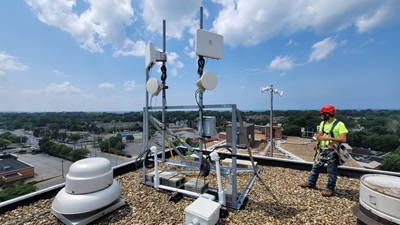Digital Equity Unwrapped: A Look Back at a Challenging Year – and the Hope That Remains
The end of the year may be winding down, but the digital equity community is gearing up for one last big Building for Digital Equity (#B4DE) gathering.
“Digital Equity Unwrapped” – a special livestream bringing together advocates and broadband-for-all leaders who spent 2025 pushing for a more connected and inclusive nation – is slated for Wednesday, December 17, beginning at 3 pm ET.
Registration is available here.
Co-hosted by the Institute for Local Self Reliance (ILSR) Community Broadband Networks Initiative and the National Digital Inclusion Alliance (NDIA), the final #B4DE of the year will open with a look ahead at Net Inclusion 2026, coming to Chicago this February.

A special gift-wrapped part of the #B4DE line-up will feature Kyla Williams Tate, who will share original poetry grounded in digital equity, reminding us that connectivity isn’t just about infrastructure – but about the human networks that do the work.
Then, attention will turn to a major focus of 2025 for digital equity proponents: fighting for affordability. For that, Lindsey Skolnik of the California Alliance for Digital Equity (CADE) will take center screen to discuss California’s push for statewide affordable broadband legislation.











